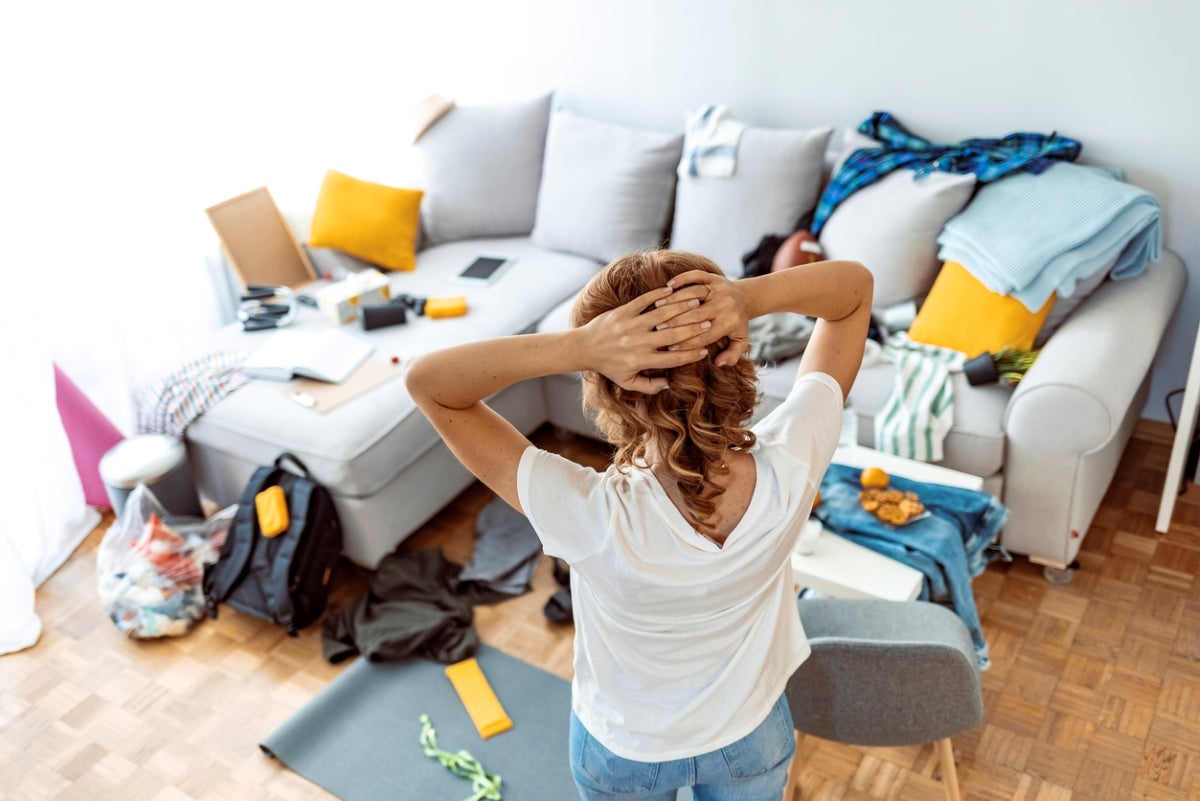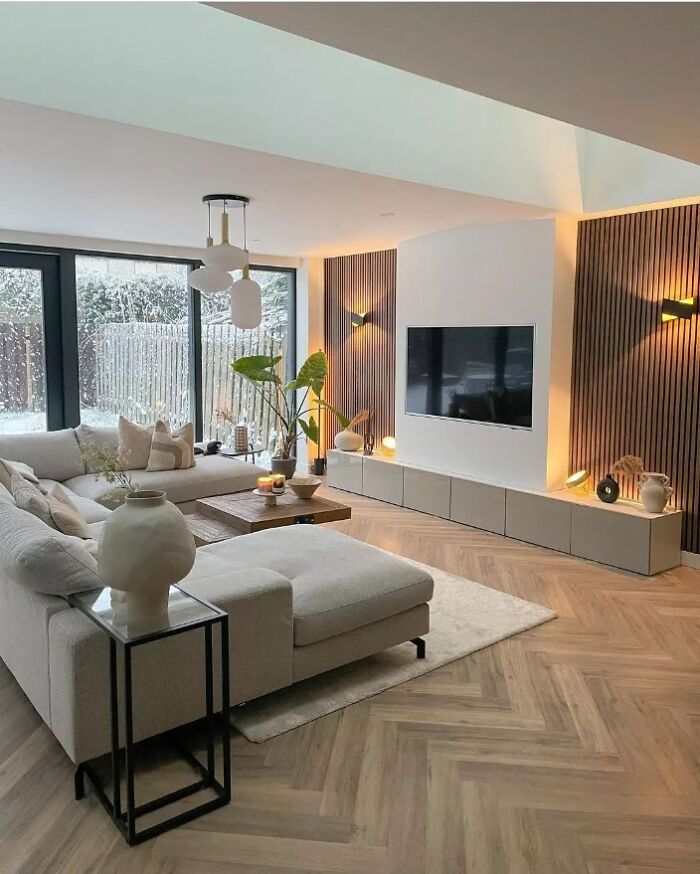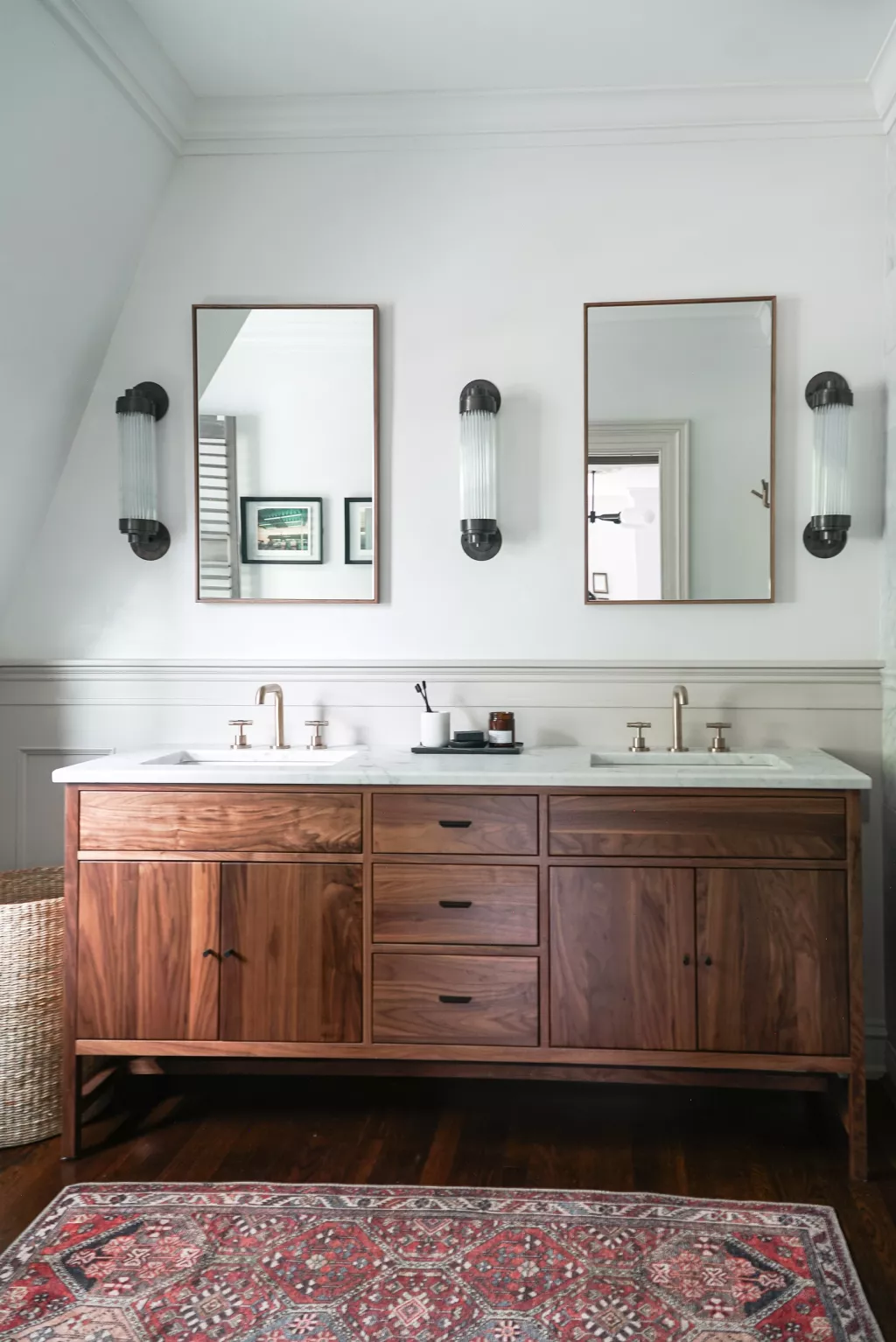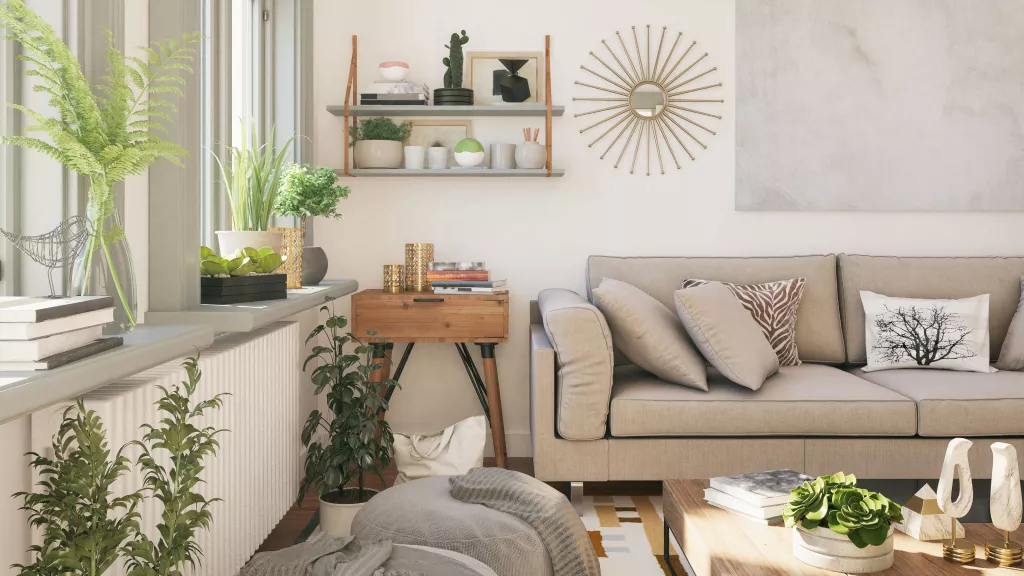Keeping a tidy and organized home is essential for maintaining a peaceful and stress-free environment. However, it’s easy to feel overwhelmed by the sheer amount of clutter that accumulates over time. The good news is that there are several tips and techniques you can use to declutter your home, regardless of how much stuff you have. By following these nine simple strategies, you can create a clutter-free space that will help you feel more relaxed and productive.
1. GIVE YOURSELF A MENTAL RESET
Feeling stressed about starting to declutter a messy space is a common experience, and it’s important to acknowledge that your feelings are valid. Christina Giaquinto, a professional organizer and brand ambassador for Modular Closets, advises being kind and gentle to yourself as a first step.
Giaquinto acknowledges that decluttering can be both a physical and emotional process, and it’s natural to feel overwhelmed at times. To help prepare yourself mentally, she suggests taking a break and resetting. You can do this by staying hydrated, journaling about your goals for decluttering, practicing mindful breathing, or listening to calming music.
If you’re new to breathing exercises, Giaquinto recommends trying box breathing, which involves inhaling, holding your breath, exhaling, and holding again for four seconds each. For more guided breathing practices, Giaquinto highly recommends the Breathwrk app, which offers various exercises based on your goals.
2. SET YOURSELF A SOOTHING SPACE
After you’ve taken a break and are feeling rejuvenated, it’s important to continue with self-care by creating an environment that still feels comfortable and soothing, despite needing to declutter.
You can achieve this by incorporating comforting items, such as a scented candle with a cozy aroma (vanilla is a great choice), a cute mug filled with peppermint tea, a familiar and comforting movie or documentary, or some nostalgic Disney Channel music to sing along to while you work. These tangible pieces of comfort can help you center yourself when you begin to feel overwhelmed during the decluttering process.

3. PLAN AHEAD
During the decluttering process, it’s common to feel like you’re not making progress when you see the piles of items that you plan to discard or donate. The sight of clutter can be overwhelming and trigger anxiety. However, you can prevent this feeling by planning ahead and taking a systematic approach.
To start, prepare for your decluttering session by gathering a garbage bag, a recycling bag, and a donation bag or box. Ideally, keep these bags or boxes outside of the room you’re working on and near the exit of your house. This way, you can easily monitor your progress and quickly remove the clutter from sight, which is a significant step towards decluttering. Additionally, placing the bags or boxes near the door provides you with the motivation to dispose of the items immediately. For example, you can take the trash or recycling bag with you when you leave the house or put the donation box in your car.
4. START SMALL AND WORK YOUR WAY UP
You don’t have to tackle the daunting task of decluttering and organizing your entire home in a single weekend. Instead, focus on one section or drawer at a time. Many experts recommend completely emptying the area you plan to work on, which can be less intimidating when it’s a smaller space like a shelf or desk drawer, rather than an entire room.
To begin, you may have a neglected junk drawer or “The Chair” that’s been accumulating miscellaneous items for far too long. These are good places to start. Once you’ve cleared out and organized those areas, you can gradually move on to other sections like the area under the sink, your dresser and bookshelf, and eventually work your way up to larger projects like your closet or kitchen cabinets.
Remember, taking small steps towards decluttering and organizing can help you stay motivated and avoid feeling overwhelmed. By focusing on one area at a time, you can make noticeable progress and enjoy a sense of accomplishment after each section is complete.
5. DECLUTTER IN SHORTER SESSIONS
Decluttering can be a challenging task, and it can leave you feeling physically and mentally drained after going through your old belongings. That’s why experts recommend breaking down the task into shorter sessions. The suggested time frame is between 15 to 20 minutes per session, with a maximum of 30 minutes.
Set a timer for your decluttering session, and once it goes off, take a step back, whether or not you’ve completed the area you were working on. Give yourself a break to recharge. You can do some stretches, get some fresh air, or take a few minutes to scroll through your phone. After that, return to your project feeling refreshed and evaluate what steps you need to take during your next decluttering session.
Remember, taking breaks during decluttering can help you stay motivated and avoid burnout. By breaking down the task into shorter sessions, you can make steady progress towards a clutter-free home without feeling overwhelmed.
6. TAKE FREQUENT BREAKS
If you’re feeling overwhelmed during the decluttering process and experiencing anxiety, it’s a sign that you need to take a break. It’s essential to listen to your mind and body when it’s telling you to pause and step away.
Giaquinto suggests taking a moment to breathe, grab a glass of water, and step away from the clutter to clear your head. If you’re feeling super overwhelmed and need to finish decluttering for the day, that’s okay too. One helpful tip is to quickly gather any items that still need to be sorted through and put them in a bag to revisit later when you’re in a better headspace. This can help make your home feel calmer and less chaotic in the meantime, taking the pressure off of yourself to complete the area before you’re ready.
Remember, it’s essential to prioritize your mental and emotional well-being during the decluttering process. Taking breaks and stepping away when needed can help you stay motivated and avoid burnout.
7. USE GROUNDING TO WORK TOWARDS QUANTIFIABLE GOALS
If you struggle with anxiety in your day-to-day life, you’re likely familiar with grounding techniques like observing the environment around you or counting items of a specific color or starting with a particular letter. These techniques help bring you back to the present moment and give your mind something to focus on instead of feelings of stress.
The concept of grounding can also be applied to decluttering when you feel overwhelmed. Set a goal for yourself, such as going through three shelves or recycling ten items, and take a break before and after you accomplish it. Then, evaluate how you’re feeling and decide if you want to repeat the process and continue with the area you’re working on or if you need a more extended break.
Remember, the decluttering process can be emotionally and mentally challenging, but breaking it down into smaller goals and taking breaks to ground yourself can help you stay focused and motivated.
8. SET GOOD HABITS WITH THE 8 MINUTE RULE
Prevent clutter from building up again by incorporating mini cleaning and organizing sessions into your daily routine. Even if you’re busy, you can spare a few minutes every day, which will save you a lot of time in the future.
“Set a timer for 8 minutes, and put things away every day,” suggests Giaquinto. “I prefer to do this before I go to bed as it eases my mind and completes my day. However, you can do it at any time that suits you. Whatever you can put away in 8 minutes is fantastic.”
Over time, this habit will become part of your lifestyle, and your space will never get out of control. The objective is not to put every single item away, but to put away whatever you can within that time. Giaquinto adds, “If you manage to put away everything within that time, even better!”
Remember, the key to maintaining a clutter-free home is to make small efforts consistently. Incorporating mini cleaning and organizing sessions into your daily routine can make a significant difference and keep your space tidy and organized.
9. TREAT YOURSELF!
Taking care of yourself, both physically and mentally, is crucial during the decluttering process. However, it’s also important to celebrate your achievements once you reach your organization goals.
I believe in rewarding myself with treats, and I like to plan a small celebration for each milestone I accomplish. For example, I treated myself to an Oreo cupcake from my local bakery after finishing my spring cleaning session. I also rewarded myself with a luxurious hydration mask for completing my bedroom and a rotating makeup organizer for organizing every room in my apartment.
Your rewards should be something that motivates you, and you can scale them up as you tackle larger organizational projects. It can be as simple as treating yourself to your favorite frappuccino from Starbucks after decluttering your junk drawer or getting a new lipstick after organizing your bathroom. When you finish organizing your entire home, go for a cute decor item or a luxurious candle to add a pop of color or aroma to your space.




